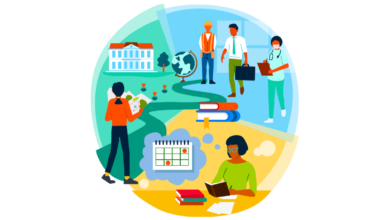The Role of Education in Addressing Climate Change
Climate change is one of the most pressing issues facing our planet today. As our world continues to experience the negative effects of global warming, it’s becoming clear that something needs to be done to address this problem. One of the most important ways to combat climate change is through education. In this article, we’ll explore the role that education can play in addressing climate change and what we can do to ensure that our education systems are working to make a positive impact on the environment.
Introduction
In this section, we’ll provide an overview of what climate change is, why it’s important to address it, and how education can help.
What is climate change?
Climate change refers to the long-term changes in the Earth’s climate, including changes in temperature, precipitation, and weather patterns. These changes are primarily caused by human activities such as the burning of fossil fuels and deforestation.
Why is it important to address climate change?
Climate change is important to address because it has significant negative impacts on the environment, human health, and the economy. Some of the effects of climate change include rising sea levels, more frequent and severe natural disasters, and changes in weather patterns that can impact agriculture and food supplies.
How can education help?
Education can play an important role in addressing climate change by raising awareness of the issue, providing people with the skills and knowledge needed to take action, and encouraging sustainable behaviors and practices.
The Role of Education in Addressing Climate Change
In this section, we’ll explore the specific ways that education can help address climate change.
Raising Awareness
One of the most important ways that education can help address climate change is by raising awareness of the issue. This includes educating people about the causes and effects of climate change, as well as the steps that can be taken to mitigate its impact. By increasing awareness, people are more likely to take action and make changes in their own lives that can help reduce their carbon footprint.
Building Knowledge and Skills
In addition to raising awareness, education can also help build the knowledge and skills needed to address climate change. This includes teaching people about renewable energy, sustainable agriculture, and other environmentally-friendly practices. By providing people with the skills they need to make positive changes, education can help create a more sustainable future.
Encouraging Sustainable Behaviors
Education can also help encourage sustainable behaviors and practices. This includes teaching people about the benefits of recycling, reducing energy consumption, and using public transportation. By encouraging these behaviors, education can help reduce greenhouse gas emissions and other negative environmental impacts.
Fostering Innovation
Finally, education can help foster innovation and creativity in the fight against climate change. This includes supporting research into new technologies and encouraging students to develop new ideas and solutions. By fostering innovation, education can help create new opportunities for addressing climate change and creating a more sustainable future.



